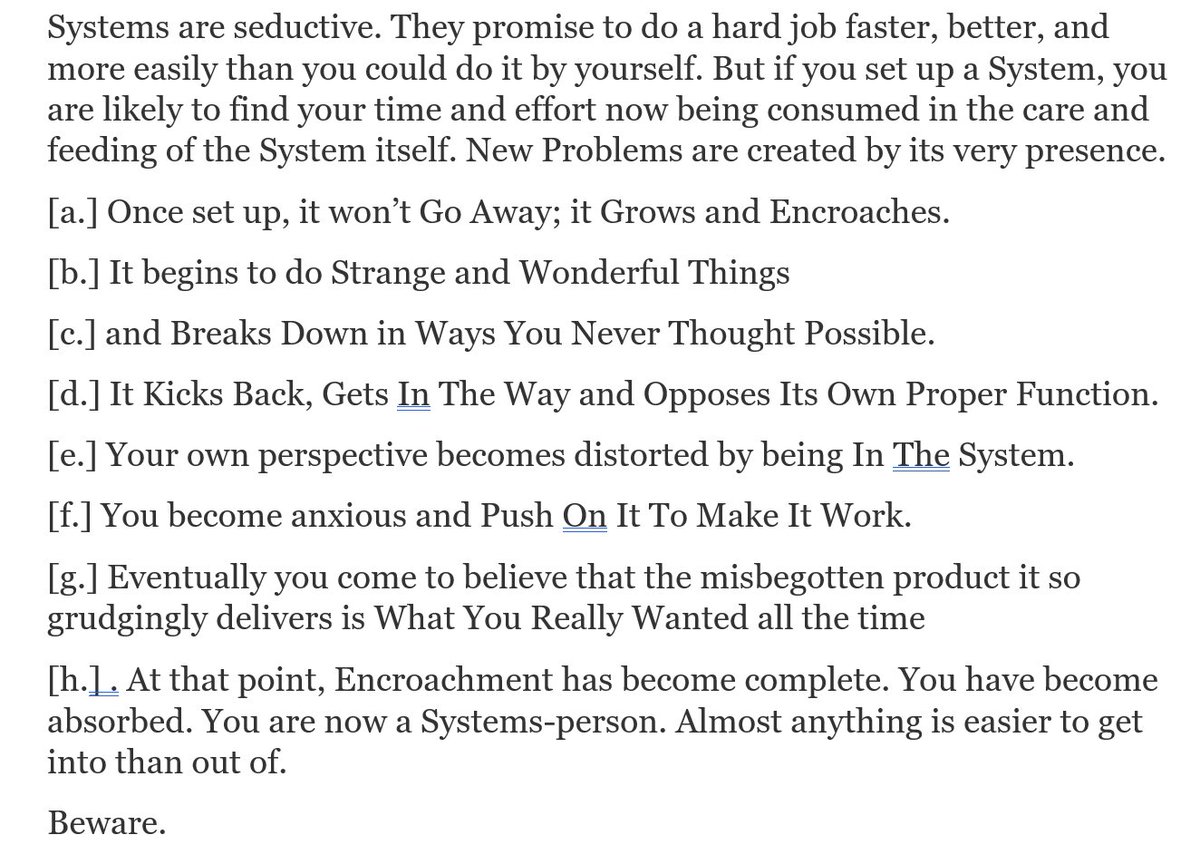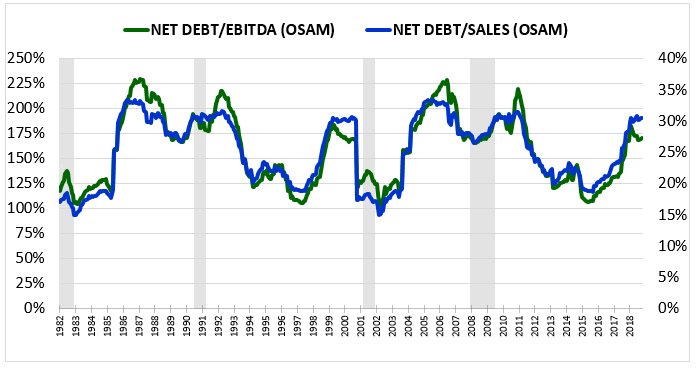First up:
1. The Systems Bible by John Gall
*Do not build a system unless you absolutely need to*
If you do, make it as simple as possible.
Example: The Congress of the United States specifically exempts itself from legislation.
Super tankers can’t dock.
Whatever a system has done before, you can be sure it will do it again.
In a closed system, information tends to decrease and hallucination tends to increase.
If the error is grandiose enough, it may not even be comprehended as an error, even when brought to attention. Thus, the loss of tends of thousands of lives per year in auto accidents is seen, not as a flaw, but merely as a fact of life.
My favorite simple application of this: don’t have a regularly scheduled meeting if an email will do.
*A complex system that works is invariably found to have evolved from a simple system that worked*










